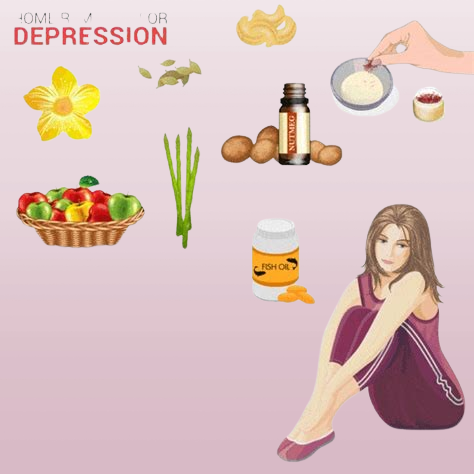Understanding Depression: A Deep Dive
Table of Contents
Depression is a multifaceted mental health disorder that considerably influences an individual’s emotional and physical well-being. It is characterized by persistent feelings of sadness, hopelessness, and loss of interest or pleasure in activities once enjoyed. Clinically, depression may manifest through various symptoms, including fatigue, alterations in appetite, difficulty concentrating, feelings of worthlessness, and, in some cases, suicidal ideation. These symptoms can lead to significant distress and impair daily functioning, affecting the individual’s capacity to engage with social, professional, and personal relationships.
The causes of depression are varied and may include a combination of genetic, biological, environmental, and psychological factors. Neurotransmitters, chemicals that facilitate communication within the brain, play a crucial role in mood regulation. Imbalances in these substances can contribute to the emergence of depression. Additionally, trauma, chronic stress, abuse, or significant life changes such as bereavement can trigger depressive episodes in susceptible individuals. It is essential to acknowledge that responses to these triggers can differ remarkably from person to person, highlighting the subjective nature of this disorder.
Prevalence statistics indicate that depression is a common mental health condition, affecting millions globally. According to the World Health Organization, over 264 million people of all ages experience depression, making understanding and addressing this disorder paramount. Increasing awareness about depression enhances the ability to recognize its signs and symptoms, allowing individuals to seek appropriate help. Equally important is reducing the stigma associated with mental health issues, which often prevents those affected from taking necessary steps toward recovery. By fostering understanding, communities can better support individuals in navigating their struggles with depression, ultimately aiding in the effective combat against this pervasive mental health challenge.
The Link Between Lifestyle and Mental Health

Your lifestyle choices play a pivotal role in determining mental health and well-being. Various factors such as diet, exercise, sleep, and social interactions significantly influence how individuals experience and manage depression. Research has established a strong causal relationship between these lifestyle elements and mental health outcomes, illustrating that mindful adjustments can serve as effective tools in combating depression.
Firstly, dietary choices are crucial in maintaining mental health. Consuming a balanced diet rich in omega-3 fatty acids, whole grains, fruits, and vegetables can promote a healthy brain function. Studies indicate that certain nutrients, including B vitamins and antioxidants, may help lower the risk of depression. Avoiding processed foods high in sugar and unhealthy fats can also prevent mood swings and fatigue, contributing positively to mental health.
Secondly, regular physical activity is associated with significant mental health benefits. Exercise stimulates the release of endorphins, often referred to as “feel-good” hormones. Engaging in physical activities, whether through structured workouts or recreational hobbies, not only improves mood but also reduces anxiety and stress levels. It is important to incorporate regular, enjoyable exercise into one’s routine, as this can serve as a natural remedy for depression.
Sleep patterns are another critical factor affecting mental health. Adequate and high-quality sleep is essential for emotional regulation and cognitive functions. Sleep disturbances can exacerbate depressive symptoms, leading to a vicious cycle that negatively impacts overall well-being. Implementing consistent sleep hygiene practices can enhance sleep quality and, consequently, support mental health recovery.
Lastly, social interactions contribute significantly to mental health. Maintaining robust connections with friends and family fosters a sense of belonging and support. Positive social engagement can provide emotional relief, while loneliness and social isolation have been linked to higher rates of depression. By prioritizing relationships and social activities, individuals can combat feelings of depression more effectively.
Natural Remedies: Herbs and Supplements to Combat Depression
Depression is a multifaceted mental health condition that can significantly hinder daily life. While conventional treatments like antidepressants are often prescribed, many individuals are seeking natural remedies that possess mood-enhancing properties. Among these, several herbs and supplements have garnered attention for their potential benefits in alleviating depressive symptoms.
One of the most widely studied natural remedies is St. John’s Wort (Hypericum perforatum), which has been shown to be effective for mild to moderate depression. Research indicates that it may work by inhibiting the reuptake of serotonin, dopamine, and norepinephrine, similar to the mechanism of selective serotonin reuptake inhibitors (SSRIs). The typical recommended dosage ranges from 300 to 900 mg of the standardized extract per day. However, potential side effects can include gastrointestinal upset, fatigue, and photosensitivity, which necessitate caution, especially in individuals taking other medications.
Omega-3 fatty acids, commonly found in fish oil, have also demonstrated promise in treating depression. These essential fats play a crucial role in brain health and function. Studies suggest that they may help improve mood by modulating neurotransmitter pathways. A general recommendation is to consume 1,000 to 2,000 mg of combined EPA and DHA daily. However, excessive intake may lead to side effects like increased bleeding risk and gastrointestinal issues, so it is advisable to consult a healthcare provider before beginning supplementation.
Finally, Rhodiola Rosea, an adaptogenic herb, has gained popularity for its capacity to reduce fatigue and enhance overall mood. Research indicates that it may help combat stress and improve symptoms of anxiety and depression. A common dosage ranges from 200 to 600 mg of standardized extract per day. Possible side effects are generally mild but can include irritability or insomnia if taken in excess.
Incorporating these natural remedies can provide beneficial alternatives for individuals seeking to combat depression. However, it is imperative to discuss any new supplement regimen with a healthcare professional to ensure safety and efficacy.
Nutrition’s Role in Combating Depression

Nutrition plays a pivotal role in mental health, particularly in the efforts to combat depression. A balanced diet, rich in essential nutrients, can significantly influence mood and overall well-being. It is increasingly recognized that certain foods and dietary patterns can serve as effective natural remedies for depression.
Whole grains, such as brown rice, quinoa, and oats, are an excellent source of complex carbohydrates. These carbohydrates can enhance serotonin production, a neurotransmitter that helps regulate mood. Consuming whole grains can also stabilize blood sugar levels, reducing mood swings often associated with depression.
Fruits and vegetables are critical components of a nutritionally adequate diet. They are rich in antioxidants, vitamins, and minerals that help combat oxidative stress in the brain, which is linked to depressive symptoms. Berries, leafy greens, and citrus fruits are particularly beneficial. They provide essential vitamins, such as Vitamin C and folate, known for their mood-enhancing properties.
Moreover, incorporating lean proteins into the diet is vital. Foods such as chicken, fish, legumes, and eggs are excellent sources of amino acids, particularly tryptophan, which is necessary for serotonin synthesis. Fatty fish, like salmon and mackerel, are also rich in omega-3 fatty acids, shown to be effective in alleviating depression and anxiety through their anti-inflammatory properties.
Meal planning can further enhance the dietary approach to managing depression. A well-structured meal plan might include a variety of the mentioned food groups, ensuring that one receives a well-rounded intake of nutrients. For instance, a daily diet could feature a breakfast of oatmeal topped with berries, a lunch of spinach salad with grilled chicken, and a dinner of baked salmon with quinoa and steamed vegetables.
Incorporating these dietary recommendations can not only improve physical health but can also produce a positive impact on mental well-being. Hence, adopting a balanced nutritional strategy stands as a valuable approach in the fight against depression.
The Power of Exercise in Overcoming Depression
Exercise has long been recognized as a powerful antidote to various mental health issues, particularly depression. Engaging in regular physical activity can significantly boost the production of serotonin, a neurotransmitter responsible for feelings of well-being and happiness. As serotonin levels increase, individuals often experience an uplifted mood and a reduction in anxiety, making exercise an essential component in managing depressive symptoms.
Moreover, physical activity serves as an effective stress reliever. During exercise, the body focuses on movement and rhythmic activities, allowing the mind to shift its attention away from stressors. This diversion can lead to a sense of calmness and clarity, which are vital in combating feelings of hopelessness that often accompany depression. In addition, exercise improves sleep quality, which is crucial in regulating mood and facilitating emotional resilience.
Different types of exercise cater to various fitness levels, ensuring inclusivity for all individuals seeking to improve their mental health. For beginners, walking is an excellent starting point. A simple 30-minute daily walk can enhance cardiovascular health while also contributing to improved mental well-being. As confidence and fitness increase, individuals may explore more vigorous activities such as jogging, cycling, or swimming, each renowned for their mood-boosting capabilities.
Strength training also offers benefits by promoting self-efficacy and body positivity. Engaging in weight lifting or resistance exercises can lead to profound improvements in body image, which, in turn, can alleviate depressive thoughts. Group exercise classes or team sports can further enhance motivation and provide social interaction, which is crucial for emotional support and combating isolation often associated with depression.
Adaptability in exercise routines allows everyone to find a suitable match for their lifestyle. Whether through yoga, meditation, or high-intensity intervals, the options are endless, and each form of exercise contributes positively to mental health. With dedication and consistency, exercise emerges as a viable strategy in the multifaceted approach to combating depression.
Mindfulness and Meditation: Techniques to Combat Depression

Mindfulness and meditation have emerged as effective strategies to combat depression, fostering a greater sense of awareness and encouraging individuals to engage with the present moment. These practices allow individuals to develop skills that can alleviate symptoms of depression and enhance overall mental well-being. By cultivating mindfulness, practitioners learn to observe their thoughts and feelings without judgment, which can significantly reduce the emotional turmoil often associated with depressive states.
One of the fundamental techniques in mindfulness practice is deep breathing. This technique involves focusing attention on one’s breath, inhaling deeply through the nose, and exhaling slowly through the mouth. Deep breathing exercises can help activate the body’s relaxation response, thus reducing stress and promoting emotional stability. Regular practice of deep breathing can lead to a more sustained sense of calm, making it a valuable tool for individuals experiencing depression.
Visualization is another technique often employed within mindfulness and meditation frameworks. This practice encourages individuals to create mental images that evoke peace, joy, or relaxation. For instance, imagining oneself in a serene environment, such as a tranquil beach or a lush forest, can help in temporarily distancing oneself from negative thoughts associated with depression. Visualization not only fosters a positive mental state but also serves as a mental rehearsal for real-world situations, enhancing coping strategies and resilience.
Guided meditations present an accessible form of mindfulness practice for those new to the concept. Various audio and video resources offer structured sessions led by experienced instructors who provide calming narratives and imagery. These guided sessions can focus on themes related to self-compassion, emotional release, or stress management, thus providing tailored frameworks to assist individuals in navigating through their depressive experiences. Such techniques, when practiced consistently, contribute to an individual’s mental health journey, promoting significant improvements over time.
Social Connections: Building a Supportive Network

Social interactions play a crucial role in mental health, particularly in combating depression. Human beings are inherently social creatures, and forming meaningful relationships can significantly influence emotional wellbeing. A supportive network offers emotional support, mitigating feelings of isolation that often accompany depressive states. When individuals feel connected to others, they are more likely to experience positive emotions and have a greater sense of belonging.
Building a supportive community involves actively engaging with friends, family, and colleagues. Participating in community events, joining clubs, or volunteering can foster connections with others who share similar interests. These activities not only provide companionship but also enhance self-worth and reduce the symptoms of depression. In many instances, shared experiences can encourage individuals to express their feelings, thereby diminishing feelings of loneliness.
Maintaining regular communication is equally important in nurturing these bonds. Simple gestures, such as reaching out for a conversation or scheduling regular meet-ups, can strengthen relationships. Moreover, being open and honest about one’s feelings is essential in cultivating trust and mutual understanding. This vulnerability can pave the way for deeper connections, allowing individuals to feel safe in sharing their struggles and triumphs alike.
Additionally, considering the diversity of social connections is vital. Engaging with a variety of social circles can provide different perspectives and coping strategies. Online communities may also serve as a complement to in-person connections, offering support and guidance from individuals who understand the challenges associated with depression. The integration of both physical and virtual support systems ensures that one has access to a wealth of resources in moments of need.
Emphasizing the importance of social connections can empower individuals to combat depression effectively. By actively seeking and nurturing relationships, one can create a valuable support network that provides the emotional sustenance necessary for overcoming life’s challenges.
Establishing a Healthy Routine: A Key to Mental Wellness
Creating and maintaining a healthy routine is paramount for individuals striving to combat depression. A structured daily schedule fosters a sense of stability and predictability, essential components for mental wellness. Individuals dealing with depressive symptoms may find that uncertainty exacerbates their condition; thus, establishing a routine can serve as an anchor, reducing feelings of chaos and uncertainty that often accompany depressive states.
One of the first steps in establishing a healthy routine is to set consistent wake-up times. Waking up at the same hour each day helps regulate the body’s internal clock, promoting better sleep quality. A well-regulated sleep pattern significantly contributes to emotional stability. Additionally, individuals should consider incorporating morning rituals that promote positivity, such as mindfulness meditation or light stretching, to start the day on a constructive note.
Meal planning is another critical component of a healthy routine. Nutritional balance can greatly impact mood and energy levels. By dedicating time each week to plan and prepare nutritious meals, individuals not only ensure they are fueling their bodies effectively but also engage in an activity that can instill a sense of accomplishment. Including varied food groups and focusing on whole foods can help in maintaining balanced mental health.
Moreover, integrating self-care activities into the daily routine is essential. This can range from simple practices like reading a book or taking a bath, to more structured activities such as exercise or engaging in a creative hobby. Making time for self-care nurtures the individual’s emotional needs, allowing for coping strategies to emerge organically within the routine. Establishing boundaries where work and leisure are clearly delineated can further enhance this balance.
By consistently adhering to a well-thought-out routine, individuals can create a resilient foundation that supports their journey toward mental wellness, ultimately mitigating the effects of depression.
When to Seek Professional Help: A Final Note
While natural remedies and lifestyle changes can significantly aid in managing symptoms of depression, there are times when these strategies may not suffice. Recognizing when to seek professional help is crucial in the journey towards mental well-being. It is essential to understand that feelings of persistent sadness, hopelessness, and a lack of motivation can indicate a deeper emotional issue that may require professional intervention. If these symptoms interfere with daily activities, social relationships, or self-care, it is time to consider reaching out for support.
Professional help can come in various forms, including therapy and medication, tailored to fit individual needs. Therapeutic options such as cognitive-behavioral therapy (CBT) and interpersonal therapy (IPT) have proven effective for many individuals dealing with depression. These therapies provide a structured environment to explore feelings, develop coping strategies, and modify negative thought patterns. Engaging with a licensed mental health professional can guide individuals on a path to recovery, equipping them with tools and techniques to better manage their emotions.
In some instances, healthcare providers may recommend medication as part of a comprehensive treatment plan. Antidepressants can help balance chemicals in the brain that influence mood and emotions. It is important to remember that medication may not be the right choice for everyone, and discussing potential benefits and side effects with a healthcare provider is advisable. Every individual’s experience with depression is unique, and finding a personalized approach is vital.
Seeking help is not a sign of weakness; rather, it is a courageous step towards healing and recovery. Acknowledging the need for assistance demonstrates strength and a commitment to one’s mental health. Take the time to evaluate your feelings and reach out for support if necessary. A collaborative approach combining professional help with self-help strategies can significantly enhance the chances of overcoming depression and fostering a healthier, more balanced life.



